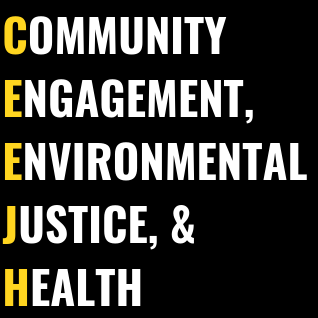The Federal Freeze: A Call for Immediate Action to Protect Vulnerable Communities
Dr. Sacoby M. Wilson
Federal funding plays a critical role in supporting essential services for low-income communities of color, as well as rural areas and tribal communities. These populations disproportionately bear the brunt of systemic inequalities—whether in healthcare, education, housing, or environmental protections. Programs like Medicaid, food assistance, housing support, and public health initiatives are lifelines for those struggling to make ends meet. A freeze in federal funding threatens to halt these vital services, leaving millions without the resources they depend on for survival. Moreover, the impact of a funding freeze will be felt across all sectors of society. Economically, it risks stalling the recovery of the nation’s most vulnerable communities, particularly those that were already facing barriers to economic mobility. Reduced funding for social safety nets will deepen the cycle of poverty, increase unemployment, and strain local economies that rely on federal assistance to support key programs.
Public health will also suffer. Without federal support, crucial health programs that provide care to underserved populations—such as mental health services, disease prevention, and maternal health programs—will face disruption or elimination. This could lead to increased health disparities, rising healthcare costs, and a deterioration of health outcomes in communities that are already struggling. A federal funding freeze is also a direct violation of the separation of powers between the legislative and executive branches of government. The U.S. Constitution assigns the power of the purse to Congress, meaning that lawmakers—not the executive branch—are responsible for determining and allocating federal funding. A freeze that obstructs the flow of these resources undermines the legislative authority and disrupts the balance of power that ensures democratic accountability.
Given these shortcomings, to protect our most vulnerable populations and uphold the democratic principles upon which this nation was founded, we provide recommendations for immediate and correct action:
Increase State and Local Government Coordination: Local governments can work closely with non-profit organizations and community-based initiatives to ensure that resources are distributed equitably, especially in critical areas like healthcare, housing, and food security. States can also allocate emergency funds or reallocate existing state budgets to address the immediate needs of their residents.
Create State-Level Safety Nets: States can expand or introduce programs to help fill gaps left by federal funding freezes. For example, increasing the availability of state-based healthcare, child care, or housing assistance for low-income populations could help mitigate the effects of federal funding cuts.
Support Equity-Focused Legislation: Prioritize state and local policies that promote social and economic equity, addressing the systemic barriers that affect low-income and marginalized communities.
Strengthen Community Leadership: Grassroots organizations and community leaders are often the best positioned to identify and address local needs. Providing them with the tools and resources they need to act—such as grants, training, and access to networks—can help mitigate the impacts of a funding freeze.
As the nation faces these difficult challenges, we must remember that a freeze in federal funding disproportionately impacts those who need help the most. The time to act is now—to protect our communities, our public health, and the principles that hold our democracy together.
